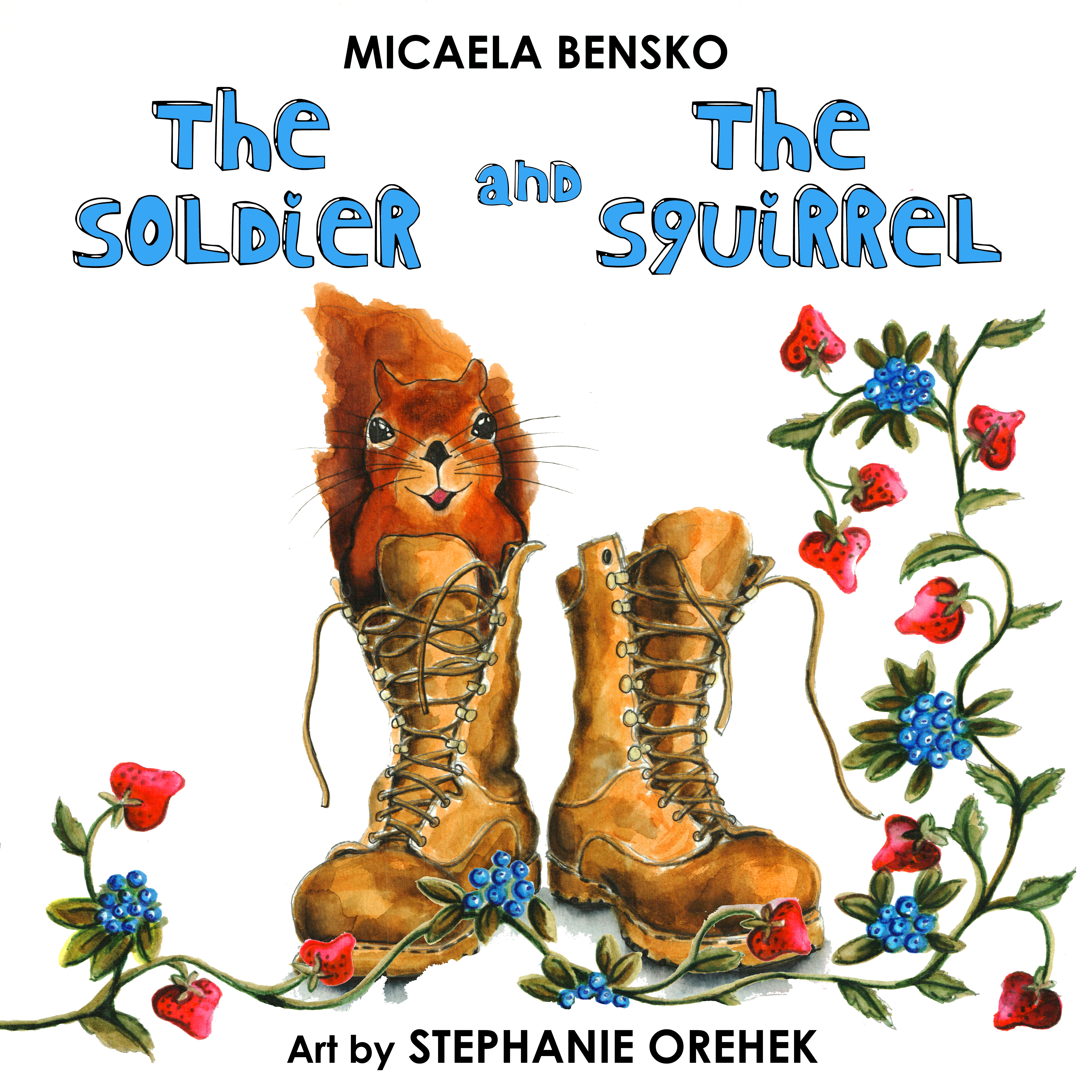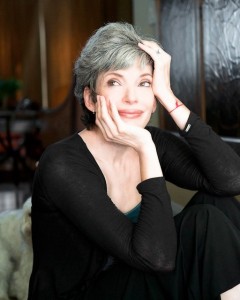By Carol Rock of KHTS www.hometownstation.com
Students in Ron Ippolito’s history class at Rio Norte Junior High got a first-hand lesson in history Thursday morning when Marine Sgt. Bret McCauley stopped by.

McCauley isn’t a local, but he isn’t that much older than the kids he held in awe. Calling on students who had questions, he’d ask “what’s up?”
The lanky brunette perched on a stool in front of the class, looking much like the older brothers many of the students had at home. He wore no uniform, no military insignia. His blue plaid shirt, black jeans and ear piercings made him look like the musician he returned home to be.
But his story of teaching himself how to play guitar all over again made for a silent and attentive crowd.
McCauley is part of the Tempered Steel, a veteran’s support group that encourages soldiers who were severely injured due to military service to speak to schools, community groups, assemblies and other gatherings about the stories behind their scars to build compassion and understanding for the veterans.
After the Indiana native joined the Marines in June 2001, McCauley spent two years working on the Presidential protection detail. In 2004, he deployed to Iraq and was shot in an ambush in March. Six months later, he and 14 Marines in his platoon were traveling in a truck enroute to Falujah when a suicide bomber drove into the side of the vehicle, killing nine of the men in the truck. McCauley woke up stateside. His left arm had nearly been severed, he lost his left kidney and spleen, had shrapnel in his intestines and severe head trauma. Both of his eardrums had been blown out, his corneas were rippled from the impact and his back was broken in two places.
“The military is not that great at getting medical care to its soldiers,” he explained. “I had 30 surgeries in the first year and was on all kinds of pain medications. I could barely take care of myself.”
When he was discharged from the service, he said he was “still kind of a mess.” He moved out to the West Coast, settling at first in Oceanside near the Marine base, then moving to Hollywood to live with his cousin, who was attending music school.
“About a year later, I was sitting on the couch when the phone rang,” he said. “It was Rhonda from the Dr. Phil Show. I’m not exactly their demographic, but she was calling to invite me to a big dinner that this veteran’s group was having. My mother watches the show and when they announced they were looking for someone who deserved a seat at the dinner, her letter was picked.”
McCauley went to the dinner, which was sponsored by the Iraq Star Foundation, a wounded warrior group. He made some valuable connections, including Tempered Steel photographer Micaela Bensko, who is the daughter of Iraq Star founder Maggie Lockridge.
“Within six months, my arm and head were fixed,” he said.
That dinner turned his life around and he joined the troops visiting classrooms to tell the real story of life in the war zone.
Within a month of deploying in Iraq, where McCauley said they were told they were to operate much like the police, his unit found out that the situation was very different. During a changeover with the Army three weeks after their arrival, he said they were walking down the street, sweltering in long sleeves, flak jackets and helmets and the weight of their guns when he “got a weird feeling that something was going to happen.”
“I told myself ‘you’re in a combat environment, you’re supposed to be nervous’ but I couldn’t swallow the feeling,” he said.
The platoon was inside the city wall with three companies of Marines outside when suddenly a spray of gunfire shattered the night and a rocket flew over his shoulder hitting the building behind him.
“It was mind-blowing,” he told the rapt students. “It was coming from behind us and in front of us and we didn’t know where to cover. We were being ambushed from the rooftops, just 28 guys and me. And the Marines outside never got our radio transmission, so we were under friendly fire too.”
Running for cover, he felt something in his leg snap, but adrenaline kept him going. It wasn’t until the gunfire stopped and he tried to stand that he looked down and saw the baseball-sized hole in his pants and felt the warm blood coursing down his leg.
“It wasn’t at all what I thought,” he said, pointedly speaking to the video gamers in the crowd.
In that firefight, one of his friends was killed; a fellow Marine with whom he’d just had dinner. The students squirmed in their seats as he related the details of his evacuation, explaining that his injury kept him out of a seat on the aircraft; forcing him to lay on the floor of the helicopter, face-to-face with his dead friend.
He was given the choice to be treated and returned to the field or be sent home, and said the choice was very clear.
“I just watched my friend get shot,” he said. “I’m not going home.”
Three weeks before his deployment was to end, his platoon was going down to Falujah to relieve another platoon.
“My squad, everyone I slept with and ate with, we’d done this a hundred times before,” he said. “Then I blinked and woke up two weeks later. I had no idea what happened.”
The suicide bomber that drove into their vehicle was carrying a 500 pound bomb and two artillery shells, decimating their truck. One of his friends survived only because he ducked under the dashboard a split second before the crash to retrieve the bottle of water. Everyone else on that side of the truck was killed immediately.
“It’s the sacred geometry of chance,” he said. “You don’t know why and you don’t know how, but you just do something that saves your life.”
“We don’t really know why things happen the way they do,” McCauley stressed to the students. “The only thing we know is that you don’t get to choose what will happen to you, you do get to choose what you do about it.
“You gotta learn to sing in the rain,” he said, smiling.
After the students applauded his story, he took several questions, which ranged from the innocent to the intensely personal.
“Do you have dreams about the war?” one asked.
“War is nothing you really get over,” he said. “You learn to live with it. And you learn not to think about it.”
His musical career was of interest, and when asked if he plays guitar now, he started to laugh.
“Yes, I learned again, thanks to Guitar Hero, of all things. I started playing a little bit and my fingers hurt at first, but then my hands started working again.”
A young girl asked him if he would return to the military and McCauley hesitated.
”That’s a very hard question,” he said, pausing. “Knowing what I know now, yes. Yes, I would. It’s given me so much fortitude, drive and direction.”
The inevitable inquiry about “have you ever killed anyone?” brought a technical answer, with McCauley explaining how Marines handle such situations with a tactical approach, trailing off into a description of a firefight.
“You probably know already,” he said.
Asked about his years guarding the President, McCauley started to laugh.
“I stood in the woods watching a lot of chipmunks around Camp David,” he said. “It was extremely boring. Sure, I was on CNN, saluting when the helicopter landed and the President would come down the stairs, but I wouldn’t have volunteered to go to war if I liked that job.”
A follow-up question about any threats during his Camp David assignment brought a cautionary answer.
“That’s top secret information,” he chided. “But I will tell you that there were not too many incidents of terrorists in Maryland.”
A boy asked if it was dark when McCauley was in a coma. He answered that the dreams were pretty vivid and strange, but that he heard everything people said. How his brain interpreted it, he added, was sometimes pretty weird.
Asked “are there girls in Iraq?” brought a smile again. “Yes,” he answered. “But they don’t look like you guys.”
“The best thing about sharing these experiences with you is that it isn’t just for you guys to learn about what it’s like, to hear some guy and his crazy war stories,” he said. “It helps me too, to be able to share. The emotional part of healing is a bigger beast than the physical thing.”
 Wednesday, May 25, 2011 at 3:27PM
Wednesday, May 25, 2011 at 3:27PM 



